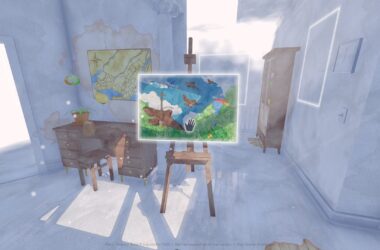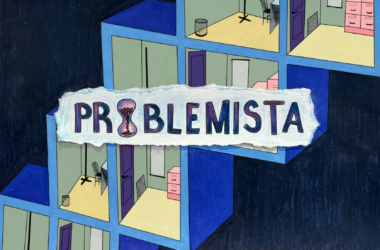From narrative films to political documentaries to abstract and surrealist productions, the Femme Fatale Film Festival has something for every type of film lover. The festival offers young women and femme-identifying filmmakers a means to showcase their work in an inclusive and empowering space.
Festival director Astrid Mohr, U2 Arts, explained that in her final year at Etobicoke School of the Arts, she envisioned starting a film festival designed for femme-identifying and women filmmakers as her final project for an Arts Management course. Mohr spoke with //The McGill Tribune// about how Femme Fatale started and grew since its conception in 2018.
“I remember being in grade 12 […] and [feeling] that there weren’t a lot of spaces for women to gather in film,” Mohr said. “I wanted to create a space where women could […] celebrate each other’s work [….] We held [the first festival] at the Revue [cinema] in Toronto [and] it was mostly films from other filmmakers at the school. The first year, we had like maybe 35 people come.”
Since its first year, Femme Fatale has grown and expanded its film submissions beyond Mohr’s high school. Mohr explained that she had plans to sell out the Revue and host an after-party for this year’s festival, but the pandemic forced her to shift course. Despite the drawbacks of hosting the festival online, Mohr described the shift as a blessing in disguise as it allowed her to expand Femme Fatale’s scope. By collecting submissions online through FilmFreeway, Femme Fatale received over 1,700 submissions from filmmakers across the globe.
“When I first realized we wouldn’t be able to host it in person, I was pretty down about that, especially because I […] want to build a community and being able to physically gather in a space […] feels so important to that,” Mohr said. “But I realized [that] it’s more [about] having people in conversation with each other.”
By hosting a virtual after-party with the film directors, Mohr explained that her team could engage with the filmmakers more closely than in previous years. Mohr also started a podcast to increase Femme Fatale’s year-round programing.
“I’ve been interviewing female filmmakers,” Mohr said. “I think that was something we wouldn’t have done if we didn’t have this […] online platform [….] I’m really grateful to be able to have those conversations with all of those ladies because they are all just fascinating and super talented people.”
Mohr also discussed the effect that the pandemic has had on the topics filmmakers decide to explore.
“For some people, it [felt] like documentaries [became] so much more relevant because it feels really important to document the world right now,” Mohr said. “For some […] it makes so much more sense to do something completely fantastical and separate from everything that’s going on. ”
Italian filmmaker Livia Oya Proto directed a short called //Mutations// for the festival, which followed a woman living alone in her apartment during the COVID-19 lockdown. Other highlights from the festival included a satirical short by Canadian filmmaker Céline Floyd called //Museum,// which commented on rape culture by walking the viewer through various stereotypical scenes of gendered sexual harassment. In their film, //Outgrowing my shoes//, directors Grace Conley and Kaya Trefz highlighted the experience of a young woman growing up and learning how to say goodbye to childhood without completely abandoning the lessons it taught her.
Although this year has certainly had its fair share of challenges, Femme Fatale demonstrates that creatives are resilient and willing to adapt to the new circumstances by continuing to use their craft to bring people joy and entertainment. The festival offers women and femme-identifying filmmakers a space to showcase their work for a wide audience and discuss their experiences in the film industry.









